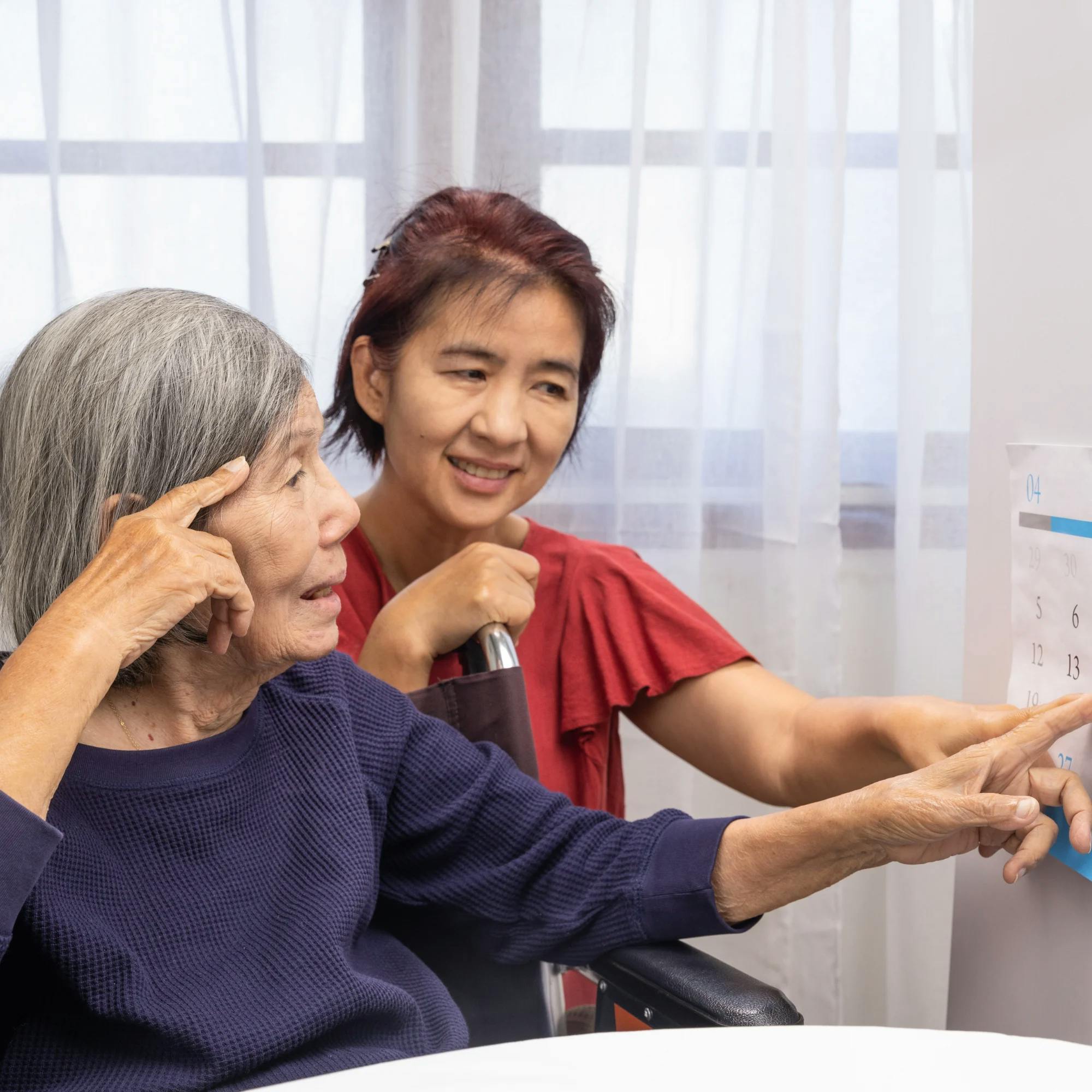It’s common to have a hard time thinking of the word you want to say. But even though many of us experience this “tip of the tongue” sensation, it can still be frustrating and embarrassing. At times, you might even wonder if word-finding difficulties are a sign of a more serious problem, such as the onset of dementia.
An inability to retrieve words can happen for many reasons. These include typical age-related changes to the brain, depression, anxiety, stress, or lack of sleep. While problems with word retrieval may also be related to cognitive decline, a new study from the University of Toronto shows that the speed of word retrieval is a stronger predictor of brain health. The study reveals that a general slowing of processing for various speech tasks is a better indicator of cognitive decline.
Let’s look at what the study showed about word-finding problems, along with changes in language to keep an eye on as you age.
How was the study done?
The study included 125 adults who ranged from 18 to 90 years old. They were shown a picture and asked to verbally describe the objects, events, and activities in the scene. Artificial intelligence (AI) was used to analyze the participants’ verbal output. The researchers looked at how quickly they spoke, the length of pauses between their words, and the variety of word types they used.
A second cognitive test assessed the adults’ skills in concentration, reasoning, planning steps, and execution of tasks. These skills are also known as executive functioning.
Finally, a picture-naming activity was used to assess the adults’ word-finding abilities.
What did the study show?
The results of all three assessments revealed a reliable pattern. With increased age, there was a generalized slowing of cognition, which was associated with broader language changes rather than with word finding alone.
This became apparent with tasks such as verbal fluency. This is the ability to generate multiple words when given a specific category, such as “animals” or “words that start with P.” This particular skill most closely resembles word retrieval within a natural conversation. It relies on the use of memory, language, and executive function skills more than the skill of naming pictures alone.
A slowing in speech production appears to be a sign of a neurodegenerative condition, above and beyond the measure of word retrieval.
While word finding when labeling pictures appears to decline with age, verbal fluency doesn’t decline with age. When the study participants had difficulty with verbal fluency, it coincided with changes in their use of pausing and a decline in their language complexity and speed of speech production. Therefore, any evidence of a slowing in speech production, beyond what’s expected from normal aging, appears to be a sign of a neurodegenerative condition, above and beyond the measure of word retrieval.


What do the study results mean for concerns about word finding?
The results of this study can calm fears that many people have about word-finding problems. Word finding typically declines during our lifetimes. This shouldn’t cause concerns about brain health. However, an overall decline in the speed and production of language during conversation may be a sign of problems with brain function. This is a more sensitive measure, and it’s best to assess any concerns through an evaluation with a speech-language pathologist.


What should you do if you notice changes in your use of language?
The key takeaway is to keep an eye out for changes in language use:
Are you or a loved one generating words more slowly?
Are you tending to use language that’s not as complex as before?
If you’re having word-finding problems, are they getting worse or interfering with your daily life?
If you notice any changes, talk with your doctor and schedule a speech therapy evaluation.
At Expressable, we offer speech and language evaluations to document potential language changes and determine if treatment is needed. Start the evaluation process today. We're here to help!
How Expressable Can Help
Concerned your child isn't reaching age-expected milestones? Looking for communication support from a professional? Expressable is a national online speech therapy practice serving children and adults. We treat all major areas of communication and feeding, offer flexible hours including evenings and weekends, and accept most major health insurance plans. We’re proud to have earned more than 3,000 5-star reviews from our clients (4.9/5 average).
Our therapy model is centered on parent and caregiver involvement. Research proves that empowering caregivers to participate in their loved one’s therapy leads to better outcomes. That’s why we combine live, 1-on-1 speech therapy with personalized education and home practice activities for faster progress.
Communication is more than words. It’s how we share how we feel and show who we are. We’re here to help you or your child do just that.

 Laura Thorburn, M.S., CCC-SLP
Laura Thorburn, M.S., CCC-SLP













